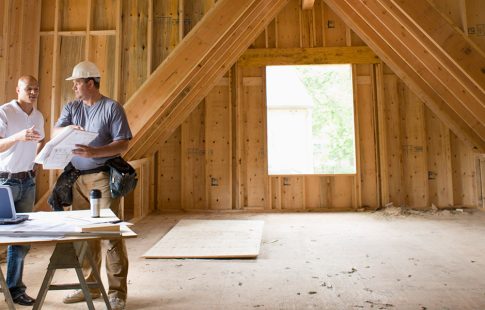Estimated reading time: 4 minutes
After a natural disaster like a hurricane or tornado, your first priority will be to keep yourself and your loved ones safe. When the storm passes there will likely be challenges to face, but there are a few things you can do to help make sure you stay protected when it comes to your home and finances.
1. Before making repairs, document the natural disaster damage
It’s normal to want to start making repairs as soon as you can, but it’s recommended that you document any natural disaster damage first. Once you’ve protected your home from further damage, take photographs of debris and other natural disaster damages before removing or repairing anything. This will likely help in discussions with your insurance company.
Once you’ve talked to your insurance company, contact us to discuss mortgage assistance options that may be available. We outline the process in our article on insurance claims and mortgage assistance.
2. If you have been temporarily relocated, save your receipts
Your homeowners insurance policy may cover living expenses if your home has natural disaster damage and you need to leave it temporarily. It’s best to keep a record of all your expenses during this time so that you have a record of what you spend—and so you can submit them to your adjuster and insurance company for reimbursement consideration.
If you have to leave your home and your address will change temporarily, it’s important to update your contact information with your mortgage company. If you’re a Mr. Cooper customer, you can make updates by calling us at 833-685-2565 or through your online account. If you don’t already have one, you can create your online account here.
3. Beware of fraud after natural disasters—from home repair scams to price gouging
Home repair scams and price gouging efforts increase after natural disasters. To avoid them, consider finding a contractor through someone you trust who can vouch for their work. Be wary of any contractors who ask for large amounts of money upfront or provide very low bids. The Federal Trade Commission (FTC) advises that you should only make a down payment with a credit card or check, never cash. They add that some states also limit how much contractors can request down. Contact your state or local consumer protection agency to learn more.
On that point, get multiple bids, set agreements in writing, and make sure your contractor is insured and licensed to work in your area. Also look for common red flags. Some the Federal Communications Commission (FCC) and the FTC warn to beware of include:
- Unsolicited phone calls or visits
- Promises that your debris can be removed immediately—it may be a scam for a fast payment or the “contractor” may not be skilled for the job
- Requests for payment by gift cards, crypto, cash, or wire—payments shouldn’t be made until you’re happy with the job
- Qualifications and business information you can’t verify
- Contractors who don’t have proof of insurance
- Offers of big discounts
- High-pressure sales techniques
- Contractors claiming to be partners with your insurance company
4. Verify identities before sharing personal information
As you recover from a disaster, you may also receive unsolicited offers from people claiming to be with the government or your insurer. Some scammers may go so far as to make their caller ID or emails look like they came from an official source. Don’t share personal information, policy numbers, and other private details until you verify the source and reach out to the organization through a reliable number or email. (Don’t click on links in unsolicited emails and texts or use their numbers.)
To avoid government scams, the Federal Emergency Management Agency (FEMA) reminds consumers that:
- Government officials never charge for disaster assistance
- You should ask for official I.D. from anyone claiming they’re from FEMA and verify it before sharing any personal information
Report your suspicions of scams and fraud to the Natural Disaster Fraud Hotline at (866) 720-5721, or by contacting local law enforcement.
For more tips, visit FEMA’s webpage on reporting and preventing fraud. For more on disaster preparedness, visit our Natural Disaster Assistance & Planning Center.







